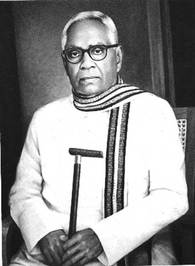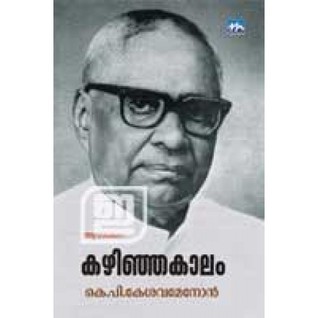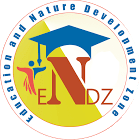



K. P. KESAVA MENON: BIOGRAPHY
INTRODUCTION
K. P. KESAVA MENON (Kizhakke Pote Kesava Menon) (1 September 1886 – 9 November 1978) was a patriot, idealist, journalist and Indian independence activist. He was born in Tharoor village of Palakkad as the grandson of the Maharajah of Palghat and as the son of Bhiman Achan. He graduated in Arts from Madras University and Bar-at-law from Middle Temple. Menon was the founder of Mathrubhumi, a popular daily newspaper which owned the second place in circulation in Kerala. He was the first Executive President of the Kerala Sahtiya Academy.- EARLY LIFE AND EDUCATION K.P. Kesava Menon was born as the son of Naduviledatthil Bheemanchan and Kizhakke Pote veettil meenakshi Nethyaramma, on1st September, in Tharoor village of Palghat. He was the grand son of the Raja of palghat. He got his primary education in Tharoor, Palakkad and Kozhikkode schools. He continued his education Coimbatore and Madras Christian College. He graduated in Arts from Madras University and Bar-at-law from Middle Temple, England
- MARRIAGE Kesava Menon married Akathethara Manikyamelidam Laxmi Nethyaramma (daughter of the then Maharajah of Palghat). He had five children. They were Chellamma, Shekhari varma, Thankam, Padmini and Leela. Palakkatsseri Valiyaraja Manikyamelidam Shekhari Varma (the current Maharajah of Palghat) is the second of his five children (Since the first and second Rajas are residing outside India, it is the third Raja, KK Itti Pangi Achan who performs the religious duties on their behalf). The other four children are: Chellamma, Thankam, Padmini and Leela. His wife Lakshmi died in 1927.Then Kesava menon married the sister of his first wife.
- POLITICAL LIFE After his education Menon became the secretary of Malabar Home Rule League. He joined the Indian National Congress in 1915 and served as the secretary of the Malabar branch of the Home Rule League after setting up practice in Calicut. He was a member of the Home Rule League under Annie Besant which proceeded to London to present a memorandum to the Secretary of State in 1917. He also wrote a dozen of books and collections of essays. In 1919, in Madras he organised sweepers and rikshaw drivers. He was among the earliest in Kerala to argue for abolition of ‘untouchability’. He gave Leadship for the Vaikkom Sathyagraham. In 1921 K. P. Kesava Menon joined the Non-Cooperation movement after giving up practice. He did relief work as secretary of KPC C during Moplah rebellion. He became the Founder-Editor of the Mathrubhumi in 1923. He was imprisoned for six months in the Trivandrum Central jail for leading the famous Vaikom satyagraha. Afer the imprisonment he moved out of Kerala due to financial difficulties as a result of full time political activity.He decided to practice law in Malaysia and Singapore. In 1927 he set up practice in Malayasia and ingapore. There also he actively involved in nationalist movements. He was very active in INA but when Subash Chandra Bose assumed the leadership and formed Azad Hind Government, Kesavamenon parted ways from it as he found it difficult to cope with Subash’s way of functioning. When the Japanese attempted to exploit the Indian freedom fighter in Malaya he resisted it. At Singapore he was arrested and confined to solitary imprisonment by the Japanese and was released only after the second world war. He resumed the editorship of Mathrubhumi in 1946. he was appointed as the High commissioner of Ceylon, but resigned due to difference of opinion. Kesava Menon became a member of the action committee of the IndianIndependence League which was organised by Ras Behari Bose in 1947. When he was the president of the Aykya Kerala Committee he worked for the unified Kerala state.
- MATHRUBHUMI Kesava Menon established the news paper called Mathrubhumi in 1923. ‘Truth, Equality and Freedom’ was the motto of Mathrubhumi. The first issue of the paper was on 18th march, 1923. In those days Mathrubhumi was used to publish only on Tuesdays, Thursdays and Saturdays. From 6th April, 1930 onwards Mathrubhumi became a fulfledged daily newspaper. Kesava Menon was its Chief Editor from the beginning till his death, except for a brief interregnum when he moved out of Kerala and went to practice law in Malaysia and Singapore where also he actively involved in nationalist movements. He wrote inspiring articles, editorials and books. His autobiography has been published by Mathrubhumi Books. He was a recipient of the civilian honour of the Padma Bhushan.
- BOOKS K. P. Kesava Menon penned a good number of valueable books and thousands of articles and editorials. He used to write the column ‘nam munnotu’ for years which educated and inspired the readers of Mathrubhumi.
He was honored with Kendra Sahithya Academy Award in 1958 He also recived the highest civilian honour Padma Bhushan in 1966. Kerala Sahithya Academy honoured Menon in1969 by giving him Kerala Sahithya Academy Award
- BIBLIOGRAPHY
- Abraham Lincoln
- Asthamanam
- Balagangadhara Thilakan
- Bandhanatthil ninnu
- Bhuthavum bhaviyum
- Bilathi visesham
- Daanabhumi
- Gopalakrishna Gokhale
- Jawahalal Nehru
- Jivitha ChinthakaL
- Kazhinja kaalam
- Mahatma
- Mahatma Gandhi
- Naam Munnottu
- Nava Bharatha Silpikal
- Prabhaatha deepam
- Rashtra Pithavu
- Samakalinaraya keraliyar
- The Great Trial
- Vijayathilekk
- Yesudevan
